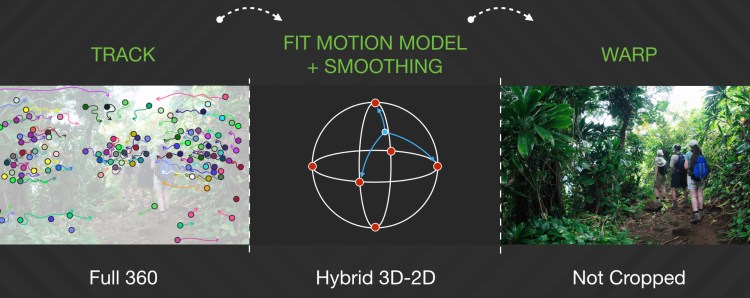Want smarter insights in your inbox? Sign up for our weekly newsletters to get only what matters to enterprise AI, data, and security leaders. Subscribe Now
At its @Scale conference in San Jose today, Facebook is announcing that it’s developed a new system for stabilizing 360-degree video and that it’s starting to test the system before rolling it out to all users on Facebook and its Oculus virtual reality platform.
The stabilization software reduces the bit rate by 10 to 20 percent while maintaining video quality, and it takes just 22 milliseconds per frame.
“This approach uses a new ‘deformed-rotation’ motion model that we designed specifically for 360 video, and a new hybrid 3D-2D technique for optimizing the model parameters in order to make shaky 360 videos incredibly smooth,” Facebook research scientist Johannes Kopf wrote today in a blog post.
The new system makes it simpler to speed up video that’s been stabilized. Facebook has a dedicated hyperlapse algorithm now, Kopf wrote. Over time Facebook will “incorporate the new hyperlapse adaptation into the functionality we offer,” Kopf wrote.
This builds on Facebook’s previous work for stabilizing video. In 2014 the company introduced the Hyperlapse iOS app. Google and Microsoft have both previously released software for stabilizing video.
For more detail on the system, check out Kopf’s full blog post.


